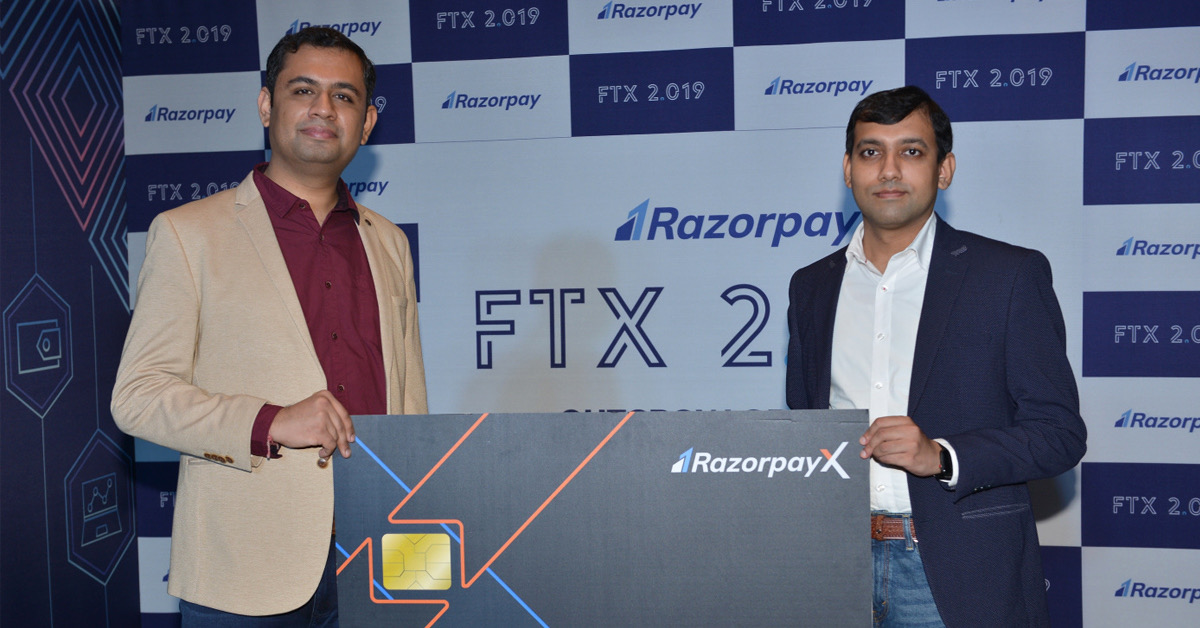ⓘ Featured image: Razorpay co-founders – Harshil Mathur (L) and Shashank Kumar
Bangalore, Karnataka-based Razorpay, one of the leading fintech startups that in India, on Monday, 12 October 2020, raised $100 million in a Series-D round led by Singapore’s sovereign wealth fund GIC and Sequoia India. The latest funding round has valued the company a little more than $1 billion – making it a unicorn.
The round also saw participation from existing investors of Razorpay including Ribbit Capital, Tiger Global, Y Combinator, and Matrix Partners. The fresh funding round has made RazorPay’s total fundraising to $206.5 million.
The company in a statement said, the fresh capital will be deployed towards accelerating Razorpay’s neo-banking offerings since the payments business of Razorpay is already growing fast and doesn’t require capital deployment.
Mathur said the startup’s payment processing service continues to be its fastest growing business and does not need much capital to grow, so the startup will be deploying the fresh funds to expand its neo-banking offerings to include vendor payment, and expense and tax management and other features.
Founded in 2014 by IIT Roorkee alumni, Harshil Mathur and Shashank Kumar, the duo began exploring opportunities around payments processing business after realising some gaps for small businesses such as young startups to accept money online less than a decade ago. There were very few payment processing firms in India by then and startups needed to produce a long-list of documents. And in 2014, Razorpay was formed to help businesses accept payments, and disburse money online.
In recent years, the startup has expanded its offerings to provide current accounts via RazorpayX, businesses loans and also launched a neo-banking platform to issue corporate credit cards, among other products.
Commenting on the development for Razorpay, Choo Yong Cheen, CEO for Private Equity at GIC, in a statement, said,
“Razorpay has established itself as a clear leader, with its strong focus on customer experience and product innovation. GIC has a long track record of partnering with leading fintech companies globally and is delighted to partner with Razorpay in its journey to transform payments and banking.”
Mathur, in a statement, revealed that Razorpay expects to process about $25 billion in transactions – up five times from last year – for nearly 10 million of its customers this year. He also claimed that some of the growth for the company came as a result of the coronavirus pandemic -accelerating digital payments adoption among many businesses. Speaking of the neo-banking and capital side, he said, Razorpay expects RazorpayX and Razorpay Capital to account for about 35% of the startup’s revenue by the end of March next year.
Speaking of the growth aspects for Razorpay, Mathur further added,
“We will continue to make an impactful contribution to the growth of the industry, aid adoption in the under-served markets and drive new practices and a new thinking for the industry to follow. And this investment fits perfectly with our growth strategy,”
A little more about Razorpay
The early team of about 11 people at Razorpay shared a single apartment as the co-founders rushed to meet with over 100 bankers to convince banks to work with them. The conversations were slow and remained in a deadlock for so long that the co-founders felt helpless explaining the same challenge to investors numerous times, they recalled in an interview last year.
To say things have changed for Razorpay would be an understatement. It’s become the largest payments provider for businesses in India. The company competes with the likes of Prosus Ventures’ PayU, Instamojo and more.
Some of Razorpay’s clients include budget lodging decacorn Oyo, fintech firm Cred, social giant Facebook, e-commerce Flipkart top food delivery startups Zomato and Swiggy, online learning platform Byju’s, supply chain platform Zilingo, travel ticketing firms Yatra and Goibibo, and telecom giant Airtel.






